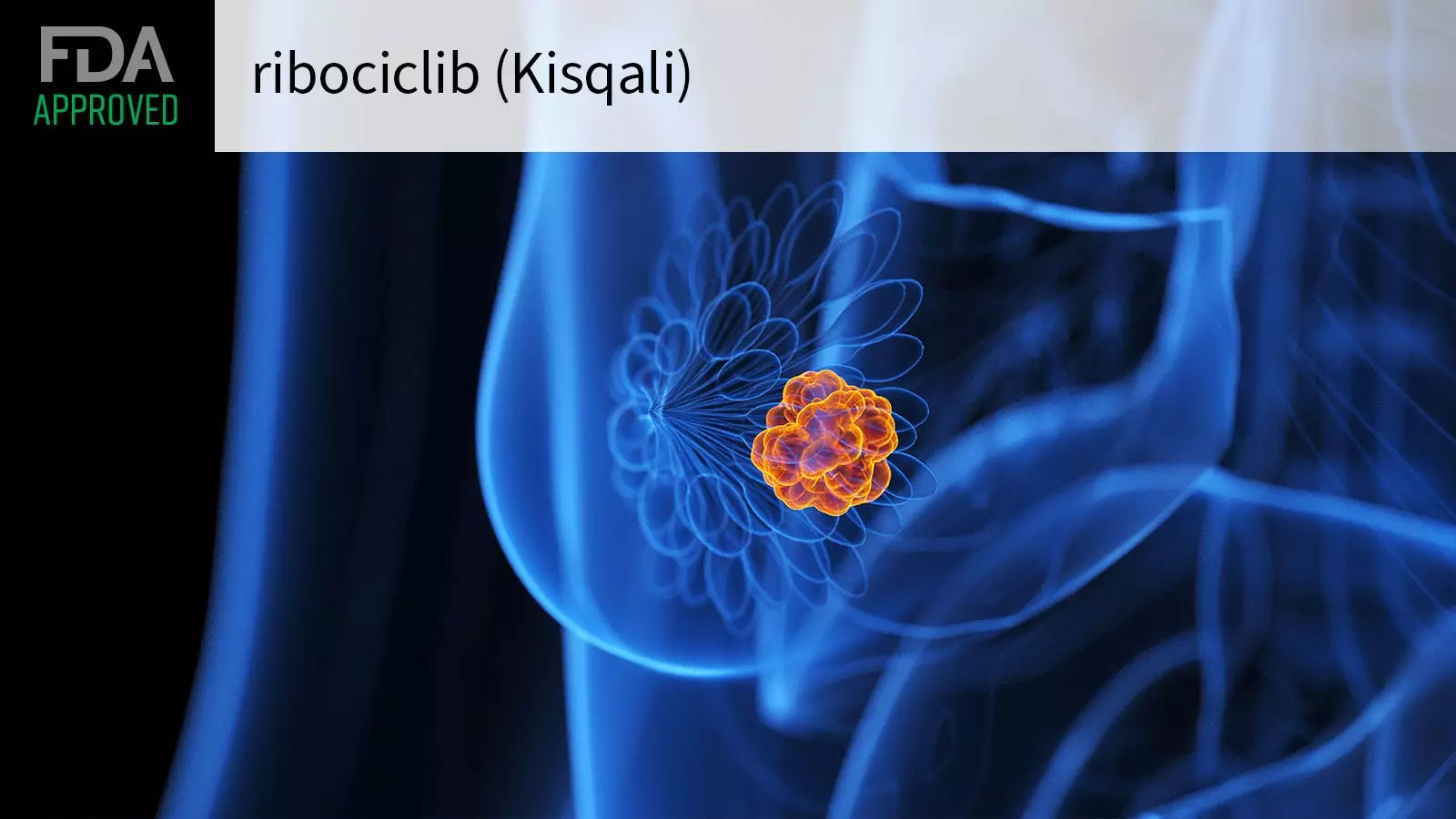The United States Food and Drug Administration (FDA) has recently made a significant stride in the treatment of early-stage breast cancer by approving ribociclib (brand name: Kisqali) in association with endocrine therapy. This groundbreaking approval is specifically targeted at patients suffering from early high-risk breast cancer characterized by hormone receptor (HR)-positive and HER2-negative tumors. For many, this approval signifies a monumental shift in therapeutic options, as ribociclib has already gained recognition for its efficacy in treating metastatic breast cancer.
Prior to this approval, ribociclib had primarily been utilized in the context of advanced-stage disease. This new nod from the FDA now opens avenues for patients with stage II to III breast cancer who exhibit high recurrence risks post-surgery. Novartis, the manufacturer of ribociclib, indicates that the supportive data reflects an approximate doubling of patients who are eligible for adjuvant therapy, especially those with node-negative disease (N0). This means that healthcare professionals now have a robust treatment option that can reach an expanded patient population, allowing more individuals to benefit from cutting-edge therapies that were previously unavailable to them.
The clinical backdrop supporting this approval stems from the NATALEE trial, which enrolled over 5,100 participants diagnosed with early-stage breast cancer. The trial’s results highlight that a three-year regimen of ribociclib combined with a non-steroidal aromatase inhibitor can reduce the risk of disease recurrence by 25% in comparison to treatment with an aromatase inhibitor alone. In real numbers, at three years, the invasive disease-free survival (iDFS) rates showcased an impressive 90.7% for patients receiving the combination therapy, contrasted with 87.6% for those receiving just the aromatase inhibitor (Hazard Ratio [HR] 0.749). Further analyses indicated even more pronounced benefits (HR 0.715), raising hopes that these findings could herald a new standard of care for qualifying patients.
Dr. Dennis Slamon, a prominent investigator from the University of California Los Angeles Jonsson Comprehensive Cancer Center, characterized this FDA approval as a pivotal moment in revolutionizing patient care for those with early breast cancer. By facilitating access to CDK4/6 inhibitors like ribociclib, healthcare providers gain an essential tool to further combat the likelihood of cancer recurrence. This represents a progressive therapy that, when combined with traditional endocrine treatments, stands to enhance the quality of care for a vulnerable patient population.
While the promise of ribociclib is exciting, it is crucial to remain mindful of the safety profile associated with this medication. Data from the NATALEE trial revealed typical adverse events consistent with the known profile of CDK4/6 inhibitors. Among these, Grade 3 or 4 adverse events of special interest were neutropenia (occurring in 44.3% of patients), liver-related issues (8.6%), and QT prolongation (1%). Additionally, the FDA has updated instructions regarding the storage of ribociclib, stating that it must be refrigerated until dispensed; patients should then store it at room temperature for up to two months.
The recent FDA approval for ribociclib expanding to include early high-risk breast cancer patients marks a significant leap forward in oncology. As clinical evidence mounts and novel therapies are increasingly available, there is a tangible hope for those battling this disease. The intersection of innovative medicines and comprehensive patient care promises to alter the landscape of breast cancer treatment for years to come, safeguarding not just survival but enhancing the overall quality of life for patients navigating their cancer journey.


Leave a Reply